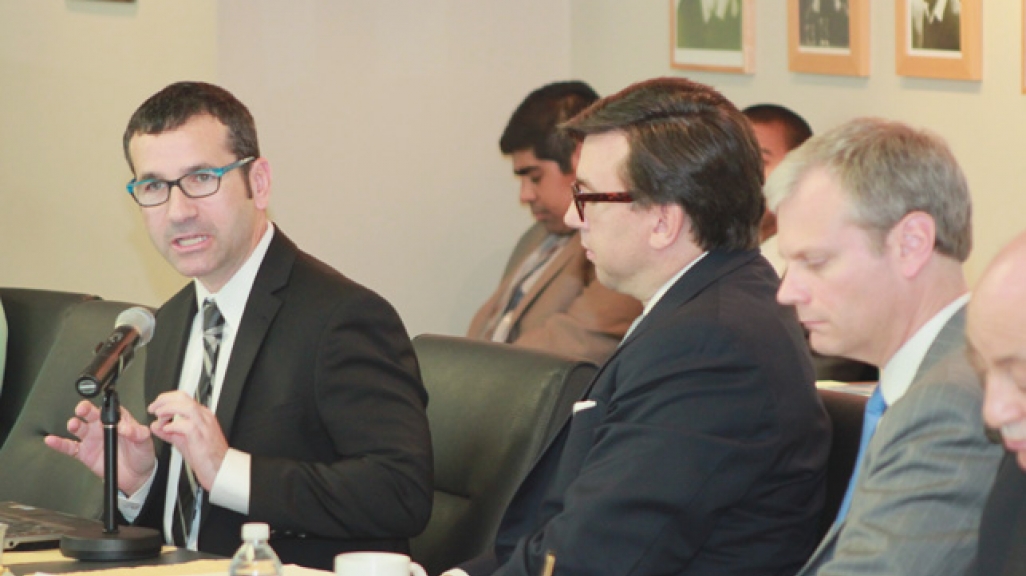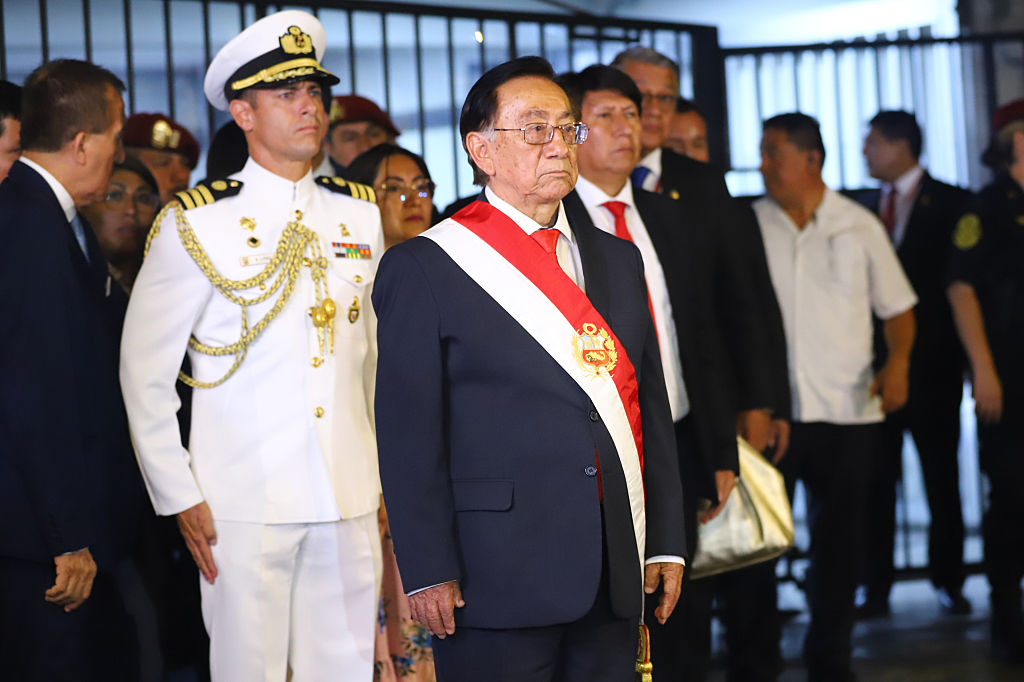Summary: Venezuela - Taking Stock One Year after Nicolás Maduro's Election
Summary: Venezuela - Taking Stock One Year after Nicolás Maduro's Election
Experts gave their perspectives on potential solutions to the Andean country's current crisis.
Speakers:
- Javier Corrales, Professor of Political Science, Amherst College
- Russell M. Dallen, Jr., President and Editor-in-Chief, Latin American Herald Tribune
- John Maisto, former U.S. Ambassador to Venezuela and the OAS
- Eric Farnsworth, Vice President, Americas Society/Council of the Americas (moderator)
Summary
On April 9, Council of the Americas hosted a panel discussion on the status of Venezuela’s political, economic, and social situation and prospects for a peaceful resolution of the current crisis. As large protests take place throughout the country amid economic troubles, what’s next for the Andean country?
A Perspective from the Ground
Russell Dallen, a veteran journalist covering Venezuela, illustrated the current environment in the country. Following the contested presidential election in April 2013, Venezuela’s opposition demanded an audit of the electoral process, though such attempts were ultimately unsuccessful. An economic and social deterioration took place during President Nicolás Maduro’s first year in office, he said. “It’s all about the economy, and it has come to be the major driving force that is now pushing Venezuelans out into the street,” explained Dallen. Plus, he added, there’s “a sense of hopelessness," given inflation at over 57 percent, currency controls, and scarcity.
Challenges during Maduro’s First Year
An expert on Venezuelan politics and economics, Javier Corrales commented on the forces behind the protests. “This country is suffering the consequences of a severe economic adjustment, an adjustment with very strong populist elements, which is producing the level of scarcity and the difficulty of controlling inflation and capital flight,” he said. Corrales also noted the government’s foreign policy challenges as the government faces international scrutiny. The situation represents a chance for the opposition, he noted, explaining: “This is the first time the opposition in Venezuela has managed to demonstrate to the government that there is a cost to being sectarian.”
As the former U.S. ambassador to Venezuela and the OAS, John Maisto pointed to growing discontent, noting “the uneven public opinion polls show that the government has reason for worry.” Maisto argued that “the government’s public affairs campaign has no credibility in Venezuela or in the hemisphere.”
The Role of the International Community
Panelists contend that now is the time for the United States and other countries to employ diplomatic means to facilitate constructive dialogue between the government and opposition. While the international community has the means to condemn violence, the speakers agreed a meaningful and lasting accord can only arise from a Venezuelan-led resolution. “The United States should respond as an eager supporter of human rights and insist on the implementation of the Inter-American Democratic Charter,” said Maisto. Speakers concurred that the real challenge to achieving a resolution is not necessarily through negotiations, but through reforms.








